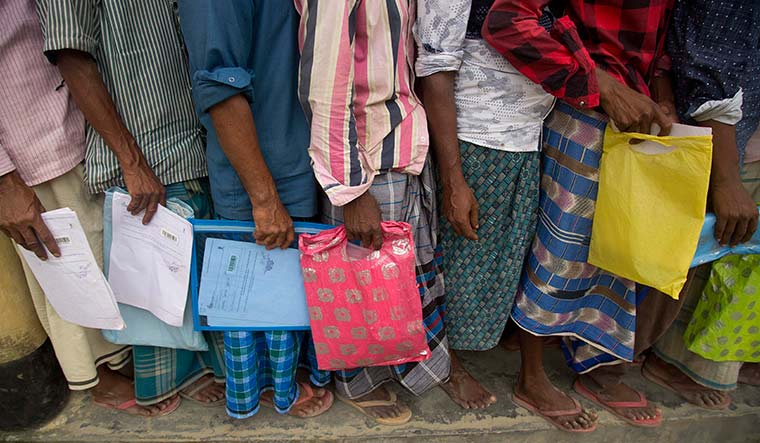FERNAND DE VARENNES IS dean of the Faculté de droit at the Université de Moncton in Canada and extraordinary professor at the Centre for Human Rights of the University of Pretoria, South Africa. He has been special rapporteur on minority issues for the UN Human Rights Council since August 2017. He is one of the three members who presented the report on NRC to the Council, criticising the manner in which the Indian government has handled the NRC process. In a telephonic interaction with THE WEEK, he spoke about the international legal concerns regarding the NRC and his expectations from the Indian government.
Excerpts:
What are your concerns regarding NRC?
The prime concern is that the people will become non-residents if the NRC process is executed as it is being promised. We have not made any determination or conclusion, just an observation. We have raised some issues and sought clarifications from the Indian government through the country’s mission in Geneva. We have told them that such an exercise is discriminatory to a particular religious group.
You said you got no response from the Indian government.
We repeatedly sought clarifications from the Indian government. The most unfortunate thing is that it refused to give any clarification. As a result, we have not made any conclusions. If we do not get any response, we may have to look at the allegations and take steps accordingly.
What are the allegations?
The allegations have dimensions related to violation of human rights of religious minorities. We are seeking clarifications on the accuracy of those allegations. We sought clarification because it raised serious concerns for us and can potentially damage the situation in Assam. There could be denial of services for millions who may end up stateless and lead to serious human rights violations.
You called it one of the worst possible human rights crises in the world.
If millions of individuals are considered non-citizens after the deadline, it would be like that. An extremely large number of people would be deprived of public services, like children being denied school facilities and youth deprived of employability. So, we wanted immediate clarification from the government.
The NRC is a judiciary-driven exercise, based on an internal agreement between the Indian government and rebels in Assam, which started three decades ago.
In general, when governments adhere to international human rights obligations, that is also applicable to every layer of government. In every sphere, the governments—Central, state or even municipal—need to adhere to such standards while deciding on policy-making exercises such as the NRC.
What is your expectation from the Indian government?
These are serious allegations and have extreme consequences for millions of people. It is extremely important that the Indian government gives an explanation and provides information to UN organisations. India will have to adhere to international standards. Because the NRC has the potential to cause disintegration, we want collaboration from the Indian government, like we got in the past. We have not received any information from the Indian government. It is very unfortunate. India must understand that the allegations are grave.
It is very disturbing that such allegations are made against India, which is a vibrant and mature democracy.
India has a proud tradition and history of protecting its vulnerable and marginalised population. That is why we expected a lot, or, at least, a clarification. Not getting even that is not only disheartening, but also very unfortunate. We need more collaboration from the Indian government regarding this.
Since independence, India has made huge contributions regarding human rights and giving protection to religious minorities. But today, India is facing extremely grave allegations and a large number of people are suffering. The situation could destabilise the region and the people. Therefore, India's non-response is unfortunate. I would say that although your country was once an example, there is now a lot of room for improvement.



